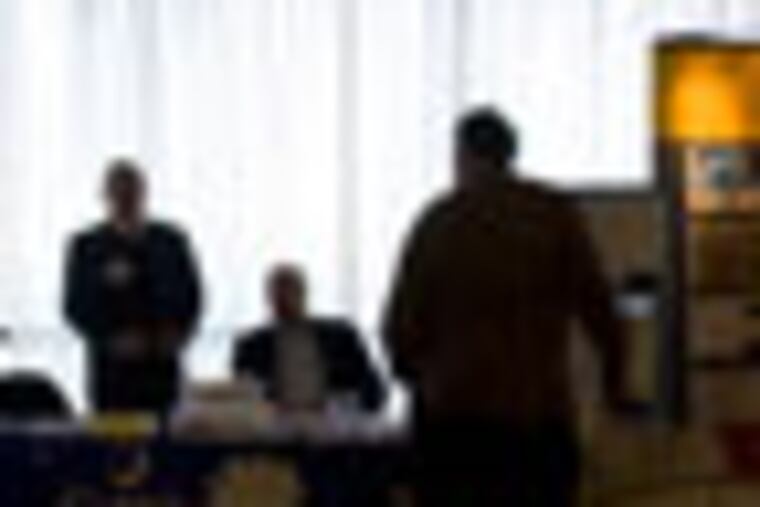Inquirer Editorial: Super-PACs are running the show in elections
On the same day voters cast ballots in South Carolina's presidential primary, a related but even more influential milestone will pass.

On the same day voters cast ballots in South Carolina's presidential primary, a related but even more influential milestone will pass.
Saturday is also the second anniversary of the Supreme Court's poisonous Citizens United decision, which allows billionaires, corporations, unions, and other special-interest groups to brazenly spend obscenely unlimited amounts on political advertising.
The two-year-old decision turned back decades of campaign-finance reforms aimed at reducing the influence of elites over the government. In essence, the court weakened the power of all but the wealthiest to determine elections' outcome.
A once-surging Newt Gingrich became the first casualty of Citizens United in the current presidential race after a Mitt Romney-supporting-super-PAC spent millions on three weeks of negative advertising that turned Gingrich into a fourth-place loser in the Iowa Republican caucuses.
The anti-Gingrich ads said he had worked with Democrats on global-warming solutions, favored amnesty for illegal immigrants, committed ethics violations, and is President Obama's preferred GOP opponent. The weakened former House speaker was barely taken seriously in the subsequent New Hampshire primary.
But Gingrich is determined to turn the tables Saturday in South Carolina. This time, he and the super-PACs that support him are on a revenge mission, with Romney in their cross hairs. They have already spent millions on attack ads and other tactics.
In this cranked-up world of bully politics, the real victims are the voters, whose ability to pick a president based on a candidate's merit has been diminished. Many will be confused by nasty TV ads that tear candidates' reputations to shreds and obfuscate issues. Some may not even vote.
Having an outsize impact on elections are the banking, energy, legal, and health-care industries, as well as the unions and lobbyists pumping money into the super-PACS. Ultimately, they will further polarize a country that needs civilized, centrist leadership.
It doesn't matter to the super- PACs - nor the more insidious "issues advocacy" groups, which don't even have to divulge their donors - whether Americans are more likely to rip at each others' throats than seek common ground. More important to them is that the public succumb to their power in elections.
As people watch the primary returns coming in from South Carolina, they should take note of the Citizens United anniversary and think of its beneficiaries as modern-day Borgias grinning from ear to ear because they have taken one more calculated step toward imposing their will.